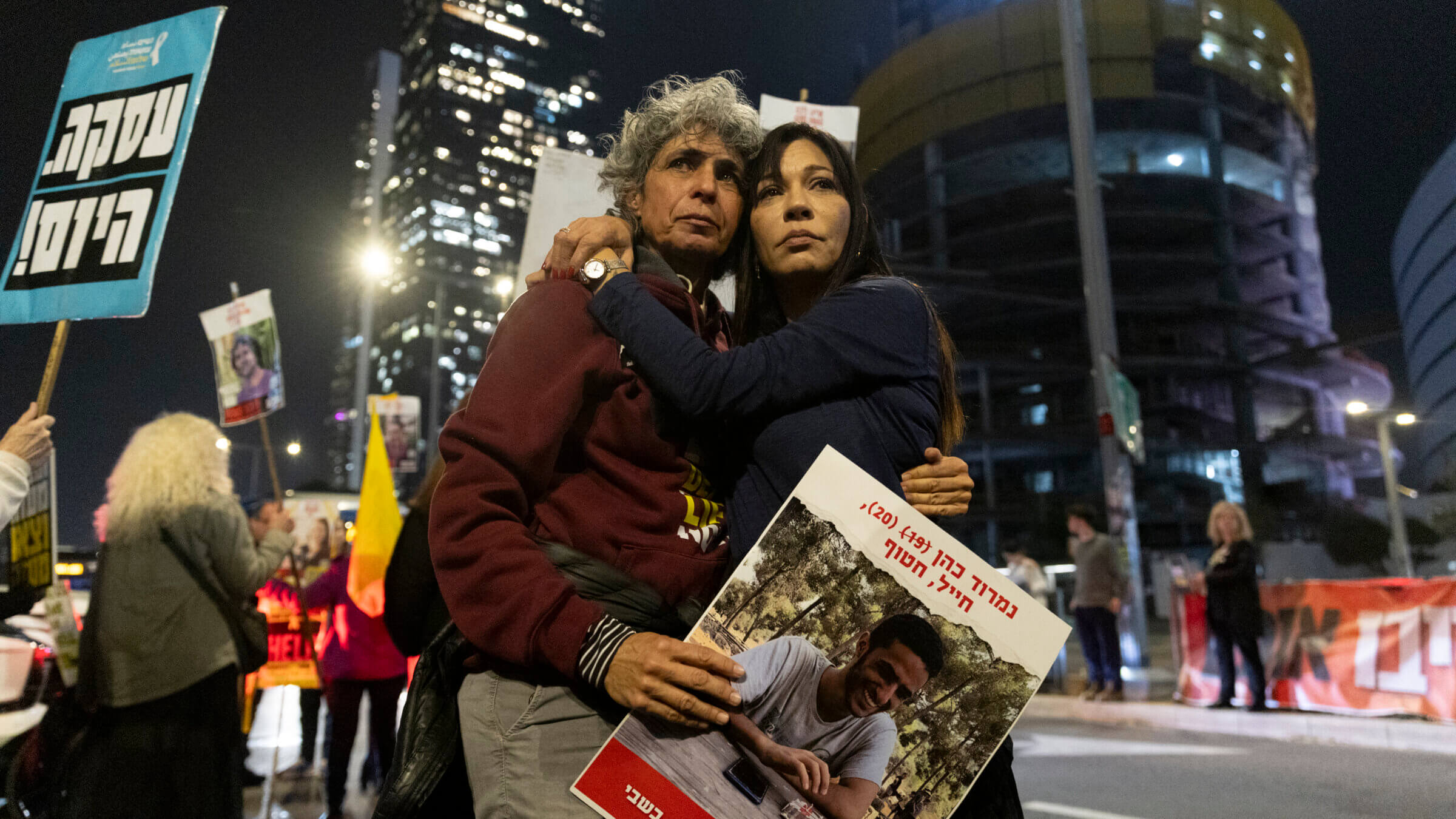Gaza ceasefire is the result of political machination — not Donald Trump
Politically, Netanyahu could have survived a deal earlier, but he made a political calculation not to strike one

Protesters calling for the return of hostages held in the Gaza Strip react after a the ceasefire and hostage deal was announced. Photo by Getty Images
Finally, after months of delay, it now looks like some Israeli hostages will be coming home, some of Israel’s troops will withdraw from Gaza, and at least some the brutal humanitarian crisis in Gaza will come to an end.
It’s widely understood that the terms of today’s deal are substantively the same as those proposed by the Biden administration over eight months ago. So what has changed?
In part, the election of Donald Trump — but not the way that many analysts are depicting it.
Here’s the narrative I’ve seen several times in the press. After 16 months of the Biden administration’s waffling, Trump’s blustering rhetoric finally persuaded Israeli Prime Minister Benjamin Netanyahu to cut a deal. Yes, Trump mostly threatened Hamas, but he had also pressured Israel in a way that Biden never could. And so, the deal was cut.
Turns out, though, this isn’t what happened.
Really, the die was cast back in September, when the faction led by Gideon Sa’ar joined the government, adding four members to Bibi’s majority and lessening the impact of the far-right Otzma Yehudit party, led by pro-genocide (a term I use advisedly) ministers Itamar Ben-Gvir and Bezalel Smotrich.
So why didn’t the deal happen then? Most likely because Netanyahu didn’t want to help the Democrats in their race against Trump. In retrospect, it’s unlikely that President Biden helping to end the war would’ve made much of a difference, but at the time, it looked like it might. So Bibi waited.
One doesn’t have to look far for a precedent. In early 1981, it was outgoing president Jimmy Carter who secured a deal to release the American hostages held by Iran. But, for reasons we still don’t know today, the actual release happened as Ronald Reagan was inaugurated, and Reagan, not Carter, got the credit.
Of course, there is one way in which Trump deserves credit for this long-awaited ceasefire deal. In the next year, we’re likely to see Israel seek to annex parts or even all of the West Bank, and it’s equally likely that Trump — whose reelection was largely bankrolled by right-wing activist-philanthropist Miriam Adelson — will be supportive. On balance, it’s an easy sell for Netanyahu: the promise of Greater Israel is well worth the price of a Gaza deal.
In other words, this moment didn’t happen because Trump’s strength brought an end to the war. It happened because internal Israeli politics made it easier for Netanyahu to alienate his farthest-right coalition partners, and Trump’s promises of greater Israeli domination made it even easier.
This wasn’t Trump, like Nixon going to China, using his credibility (or muscle) to bring about peace. It was Netanyahu delaying peace for Trump’s benefit, with far larger prizes soon to be obtained.
Lost in all these political calculations are the lives of thousands of Palestinians and the Israelis hostages still held by Hamas.
Just think of it. Let’s assume that Ben-Gvir was correct, rather than merely boasting, when he said to Smotrich that “in the past year, through our political power, we succeeded in preventing this deal from moving forward time and time again.” This means that, had Netanyahu had a bit more courage, or a bit more political coverage, this war could have ended months ago. Israeli hostages would’ve been united with their families — probably including several who were killed last August. The brutal winter siege that has inflicted misery on hundreds of thousands of innocent Palestinians in Gaza could have been avoided.
The choice, admitted Ben-Gvir, had been Israel’s.
Moreover, the choice was not between war and surrender. Yes, Israel’s enemies demanded a unilateral ceasefire as early as October, 2023. That would have meant surrender to brutal, theocratic terrorists. But as the war dragged on, and Israel’s tactics grew increasingly callous, Israel’s friends demanded a bilateral ceasefire — i.e., one including the release of hostages — starting in early 2024 (Australia and Canada on February 14; the United States on April 4; Israel’s centrist opposition parties on April 29). That would only have meant an end to the slaughter.
But it was not to be.
Even in September, when Netanyahu could have politically survived a deal, he made a political calculation not to strike one. As if we’re playing with pawns on a chessboard, rather than children running for their lives in Gaza, and parents praying for their children being held ransom by murderers. As if everything is fodder for political calculation.
Like many American Jews, I am praying that this deal goes into effect, whoever gets the credit for it. I am praying for thousands of innocent Palestinian lives, and 94 Israeli ones, that hang in the balance. Forgive me for being naïve, but in such matters, prayer seems more appropriate than machination.

















